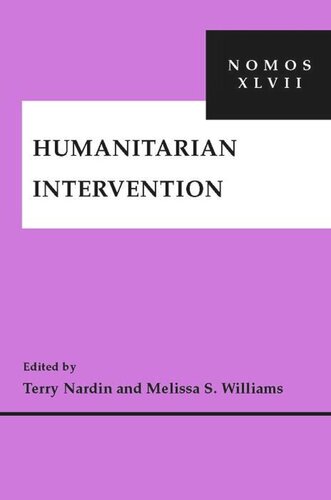

Most ebook files are in PDF format, so you can easily read them using various software such as Foxit Reader or directly on the Google Chrome browser.
Some ebook files are released by publishers in other formats such as .awz, .mobi, .epub, .fb2, etc. You may need to install specific software to read these formats on mobile/PC, such as Calibre.
Please read the tutorial at this link: https://ebookbell.com/faq
We offer FREE conversion to the popular formats you request; however, this may take some time. Therefore, right after payment, please email us, and we will try to provide the service as quickly as possible.
For some exceptional file formats or broken links (if any), please refrain from opening any disputes. Instead, email us first, and we will try to assist within a maximum of 6 hours.
EbookBell Team

4.4
62 reviewsSomalia, Haiti, Bosnia, and Kosovo. All are examples where humanitarian intervention has been called into action. This timely and important new volume explores the legal and moral issues which emerge when a state uses military force in order to protect innocent people from violence perpetrated or permitted by the government of that state. Humanitarian intervention can be seen as a moral duty to protect but it is also subject to misuse as a front for imperialism without regard to international law.
In Humanitarian Intervention, the contributors explore the many questions surrounding the issue. Is humanitarian intervention permitted by international law? If not, is it nevertheless morally permissible or morally required? Realistically, might not the main consequence of the humanitarian intervention principle be that powerful states will coerce weak ones for purposes of their own? The current debate is updated by two innovations in particular, the first being the shift of emphasis from the permissibility of intervening to the responsibility to intervene, and the second an emerging conviction that the response to humanitarian crises needs to be collective, coordinated, and preemptive. The authors shed light on the timely debate of when and how to intervene and when, if ever, not to.
Contributors: Carla Bagnoli, Joseph Boyle, Anthony Coates, Thomas Franck, Brian D. Lepard, Catherine Lu, Pratap Bhanu Mehta, Terry Nardin, Thomas Pogge, Melissa S. Williams, and Kok-Chor Tan.